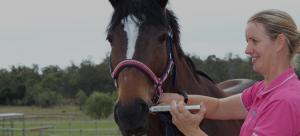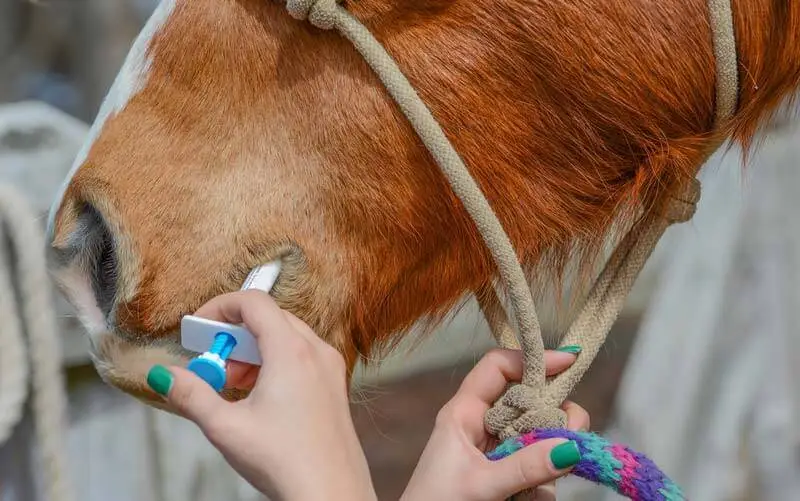My horse has yellow dots on their legs. What are they?
A common parasite of equids, including horses, donkeys and mules, these small yellow dots are the eggs deposited by bot flies. Egg removal and de-worming will assist in protecting your horse against these irritating parasites.
The bot fly relies on the horse’s body throughout several stages of its lifecycle.
The winged adult attaches as many as 1,000 eggs to the hair shafts of your horse’s legs, neck and face. The warmth and moisture of your horse licking the area promotes their hatching, whereby the larvae are ingested – burying themselves into the tongue, gums or lining of the mouth.
Upon the second stage of their development, the larvae migrate to your horse’s gastrointestinal tract, where they remain until their third stage of development. As the larvae mature, they’re passed in the manure and emerge in early Summer and Autumn as adult insects.
Treating Bot Flies
Many healthy horses can accommodate a moderate population of bot flies. However, dental irritation, stomach ulcers and oesophageal paralysis can occur as they travel through your horse.
The health consequences may be more severe for young or aged horses. In extreme cases, gastric or intestinal problems, such as impaction, rupture, peritonitis or anaemia, can result, which require immediate veterinary intervention.
Preventing Bot Flies
If you find evidence of bot flies on your horse or within their manure, your veterinarian will be able to recommend an ivermectic-based wormer to assist in eradicating the bot flies present.
Regular de-worming is a central part of horse-keeping to protect your horse’s long-term health and wellbeing from the harmful affects of parasites. A faecal egg count prior to and post-worming is highly recommended to ensure your horse is receiving the right wormer at the right dosage.




